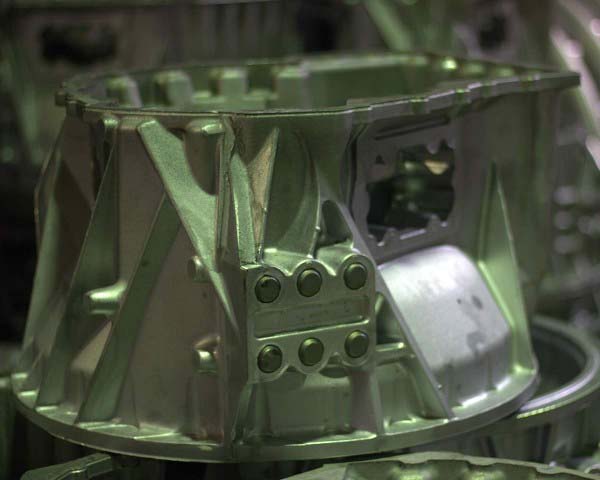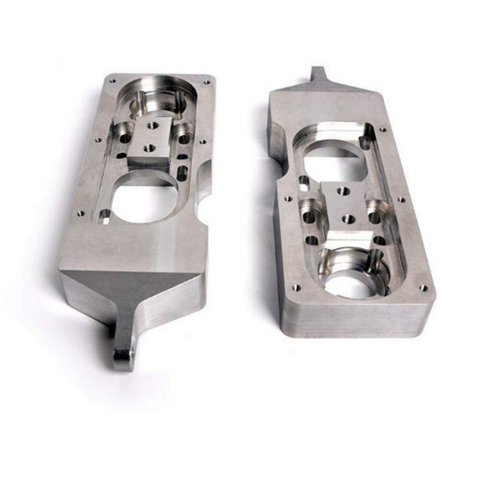Discover the Advantages of Aluminum Casting in Modern Production
Aluminum casting has become a pivotal procedure in contemporary manufacturing. Its light-weight yet durable nature offers considerable advantages for numerous industries. The ability to achieve detailed styles and keep tight tolerances includes to its allure. aluminum casting. Furthermore, the cost-effectiveness and environmental advantages make it a lasting selection. As suppliers look for cutting-edge options, the duty of aluminum casting proceeds to evolve. What details applications and benefits wait for exploration in this vibrant area?
Lightweight Yet Strong: The Advantages of Aluminum
Lots of products are utilized in production, aluminum stands out due to its exceptional combination of light-weight homes and exceptional strength. This one-of-a-kind feature makes aluminum an optimal selection for various applications, especially in industries such as automotive, aerospace, and building. Its low thickness permits less complicated handling and transportation, adding to reduced energy usage throughout manufacturing and assembly procedures.
In addition, aluminum's strength-to-weight proportion is remarkable, making it possible for suppliers to produce durable elements without including unneeded mass. This particular is particularly useful in industries where weight reduction can result in improved fuel efficiency and overall performance. Additionally, aluminum's resistance to deterioration enhances the longevity of products, further strengthening its appeal in modern production.
Ultimately, the light-weight yet strong nature of aluminum positions it as a preferred material, fostering technology and efficiency across several markets. Manufacturers progressively recognize that these advantages can result in significant developments in layout and capability.
Precision and Intricacy in Layout
As producers accept the capacities of aluminum casting, they discover brand-new opportunities for precision and intricacy in style. This manufacturing process permits the creation of intricate shapes and comprehensive functions that typical approaches frequently struggle to accomplish. The fluidity of liquified aluminum allows it to fill up complicated molds, causing parts with tight tolerances and great surface finishes.
This precision is specifically valuable in industries such as aerospace and vehicle, where precise requirements are necessary for performance and safety and security. Aluminum casting likewise suits ingenious styles that boost performance without jeopardizing structural honesty.

Cost-Effectiveness and Performance
Cost-effectiveness and efficiency are vital considerations for producers exploring aluminum casting as a production approach. Aluminum casting deals considerable cost advantages as a result of its reduced material costs contrasted to other metals (Precision aluminum casting). The lightweight nature of aluminum lowers shipping and handling expenses, and its exceptional thermal conductivity enables for quicker cooling times during the casting process, boosting total manufacturing rate
In addition, aluminum's adaptability enables makers to develop complicated shapes and designs, reducing the need for extra machining or setting up. This streamlining of manufacturing not only lowers labor prices yet likewise shortens lead times, permitting firms to react see post promptly to market needs.
Additionally, the resilience and rust resistance of aluminum castings add to longer item life-spans, minimizing substitute expenses in time. Consequently, suppliers can accomplish a balance of premium output and decreased operational expenses, making aluminum casting a progressively appealing alternative in contemporary production.
Ecological Sustainability of Aluminum Casting
Aluminum casting sticks out as an ecologically sustainable manufacturing alternative, especially as a result of its recyclability and decreased eco-friendly impact. The procedure enables the reliable use aluminum, a product that can be reused indefinitely without shedding its buildings. This particular considerably reduces the demand for virgin aluminum, consequently decreasing and conserving natural sources power consumption associated with removal and handling.

Applications Across Industries: From Automotive to Aerospace
While varied sectors continue to seek cutting-edge materials for production, aluminum casting has proven to be a versatile option throughout fields such as vehicle and aerospace. In the automobile sector, aluminum spreadings add to light-weight vehicle styles, improving gas effectiveness and performance. Parts like engine blocks, transmission real estates, and wheels profit from aluminum's strength-to-weight proportion.
In aerospace, aluminum casting plays a significant role in generating intricate components that require high longevity and reduced weight. Aircraft elements such as braces, touchdown gear, and architectural structures utilize aluminum for peak performance and safety and security.
The flexibility of aluminum casting enables it to cater to various other sectors, consisting of consumer electronics, aquatic, and commercial machinery. This adaptability not just fulfills the certain requirements of different applications however likewise supports continuous innovation in making procedures. As a result, aluminum casting remains a vital gamer in contemporary production across numerous industries.
Regularly Asked Concerns
Just How Does Aluminum Casting Contrast to Other Metal Casting Procedures?
Aluminum casting offers exceptional strength-to-weight proportions, faster cooling prices, and excellent rust resistance compared to various other metal casting procedures. These advantages go make it perfect for different Get More Info applications, improving effectiveness and performance in manufacturing.
What Are the Regular Lead Times for Aluminum Casting Projects?
Common lead times for aluminum casting projects vary from 2 to 8 weeks, relying on variables such as complexity, order dimension, and production capability. Efficient planning can aid reduce hold-ups and boost job timelines.
Can Aluminum Casting Be Utilized for Intricate Designs?
Aluminum casting can certainly accommodate intricate styles. Aluminum Foundry. Its fluidness permits for detailed patterns and forms, making it suitable for intricate elements in various markets. This convenience enhances style freedom while maintaining structural stability and performance
What Post-Processing Options Are Available After Aluminum Casting?
Post-processing options for aluminum casting include machining, brightening, surface area therapies, anodizing, and welding. These strategies improve the finish, boost dimensional accuracy, and increase corrosion resistance, therefore maximizing the final item's performance and aesthetic charm.
Exactly How Do Temperature Level Adjustments Impact Aluminum Casting Top Quality?
Temperature adjustments greatly effect aluminum casting top quality by impacting fluidness, solidification prices, and possible issues. Quick air conditioning can result in increased brittleness, while excessive heat may trigger bending or insufficient dental filling of molds throughout casting.
Aluminum casting has arised as a crucial procedure in modern-day production. As makers embrace the capacities of aluminum casting, they find new avenues for precision and complexity in style. Aluminum casting procedures typically create fewer greenhouse gas discharges contrasted to other metal casting techniques. While diverse industries proceed to look for ingenious materials for production, aluminum casting has verified to be a flexible remedy throughout fields such as vehicle and aerospace. In the automotive sector, aluminum spreadings add to lightweight lorry styles, improving fuel efficiency and performance.